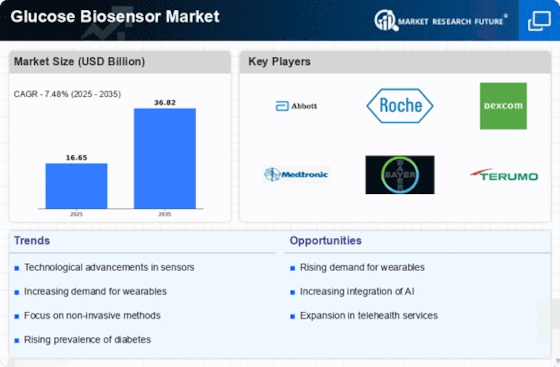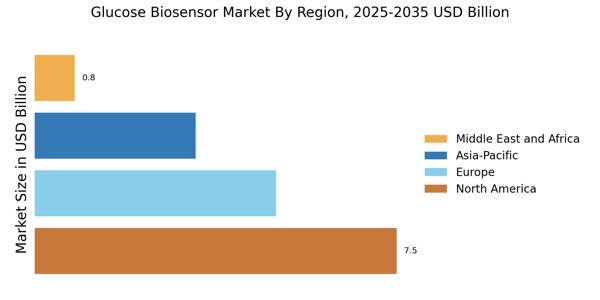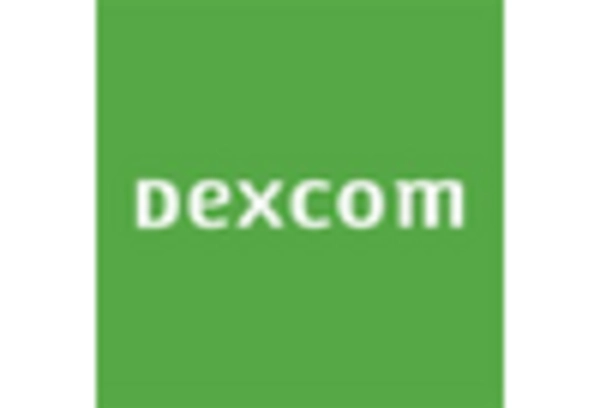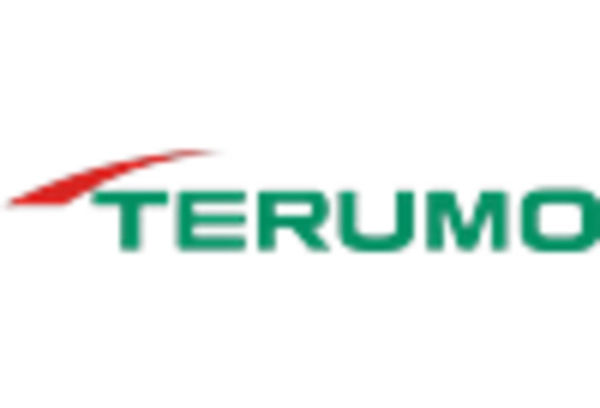Growing Health Awareness
The rising awareness of health and wellness among consumers is significantly influencing the Glucose Biosensor Market. As individuals become more health-conscious, there is an increasing emphasis on preventive healthcare measures, including regular monitoring of blood glucose levels. This trend is particularly evident among populations at risk of developing diabetes, who are seeking proactive solutions to manage their health. Market Research Future indicates that consumers are more inclined to invest in health technologies that empower them to take control of their well-being. Consequently, the demand for glucose biosensors is expected to rise as they provide an accessible means for individuals to monitor their glucose levels. The Glucose Biosensor Market is thus likely to thrive in an environment where health awareness continues to expand.
Technological Innovations
Technological advancements play a crucial role in shaping the Glucose Biosensor Market. Innovations such as continuous glucose monitoring (CGM) systems and non-invasive biosensors are revolutionizing how glucose levels are tracked. These technologies not only enhance the accuracy of readings but also improve user experience by providing real-time data. The market is witnessing a shift towards smart biosensors that integrate with mobile applications, allowing users to monitor their glucose levels conveniently. As these technologies evolve, they are expected to attract a broader consumer base, including those who may not have previously engaged with traditional glucose monitoring methods. The Glucose Biosensor Market is thus likely to benefit from ongoing research and development efforts aimed at enhancing sensor performance and usability.
Rising Prevalence of Diabetes
The increasing incidence of diabetes worldwide is a primary driver for the Glucose Biosensor Market. According to recent statistics, the number of individuals diagnosed with diabetes is projected to reach 700 million by 2045. This alarming trend necessitates the development and adoption of effective monitoring solutions, such as glucose biosensors. As patients seek to manage their condition more effectively, the demand for accurate and user-friendly biosensors is likely to surge. Furthermore, the growing awareness of diabetes management among healthcare providers and patients alike is expected to bolster the market. The Glucose Biosensor Market is thus positioned to experience substantial growth as it addresses the urgent need for reliable glucose monitoring solutions.
Integration with Digital Health Solutions
The integration of glucose biosensors with digital health platforms is emerging as a significant driver for the Glucose Biosensor Market. As healthcare increasingly shifts towards digital solutions, the ability to connect biosensors with mobile apps and telehealth services is becoming essential. This integration allows for seamless data sharing between patients and healthcare providers, facilitating better management of diabetes. Market data indicates that the digital health market is expected to grow substantially, with a projected value of over 500 billion by 2025. This trend suggests that glucose biosensors that offer connectivity features will likely see heightened demand, as they align with the broader movement towards personalized and data-driven healthcare. The Glucose Biosensor Market stands to gain from this convergence of technology and health.
Regulatory Support and Reimbursement Policies
Regulatory support and favorable reimbursement policies are pivotal drivers for the Glucose Biosensor Market. Governments and health organizations are increasingly recognizing the importance of diabetes management, leading to the establishment of supportive frameworks for the approval and reimbursement of glucose monitoring devices. This regulatory environment encourages innovation and investment in the development of advanced biosensors. Additionally, as reimbursement policies evolve to cover more diabetes management technologies, patients are more likely to adopt these solutions. Market data suggests that regions with robust reimbursement frameworks experience higher rates of biosensor adoption. Therefore, the Glucose Biosensor Market is expected to benefit from ongoing regulatory initiatives aimed at improving access to essential diabetes management tools.

















